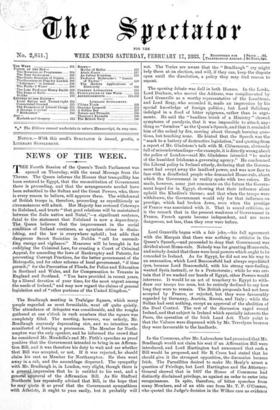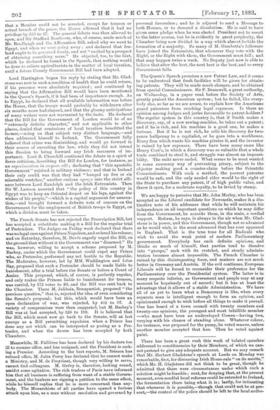In the Commons, after Mr. Labonchere had promised that Mr.
Bradlaugh would not claim his seat if an Affirmation Bill were introduced, and Lord Hartington had announced that such a Bill would be proposed, and Sir R. Cross had stated that he should give it the strongest opposition, the discussion became Irish. The Parnellites desired to make Mr. Healy's arrest a question of Privilege, but Lord Hartington and the Attorney- General showed that in 1697 the House of Commons had distinctly disclaimed privilege, as against an order to enter into recognisances. In spite, therefore, of bitter speeches from many Members, and of an able one from Mr. T. P. O'Connor, who quoted the Judge's decision in the Wilkes case as evidence
that a Member could not be arrested, except for treason or actual breach of the peace, the House affirmed that it bad no privilege by 353 to 47. The general debate was then allowed to open, and Sir Stafford Northcote, who, of course, made much of Mr. Bradlangh and the Affirmation Bill, asked why we went to Egypt, and when we were going away ; and declared that Ire- land ought to be governed firmly, and not "excited by a prospect of obtaining something more." He objected, too, to the hint, which he declared he found in the Speech, that nothing would be done to relieve agriculturists in the matter of local taxation, until a future County Government Bill had been adopted.















































